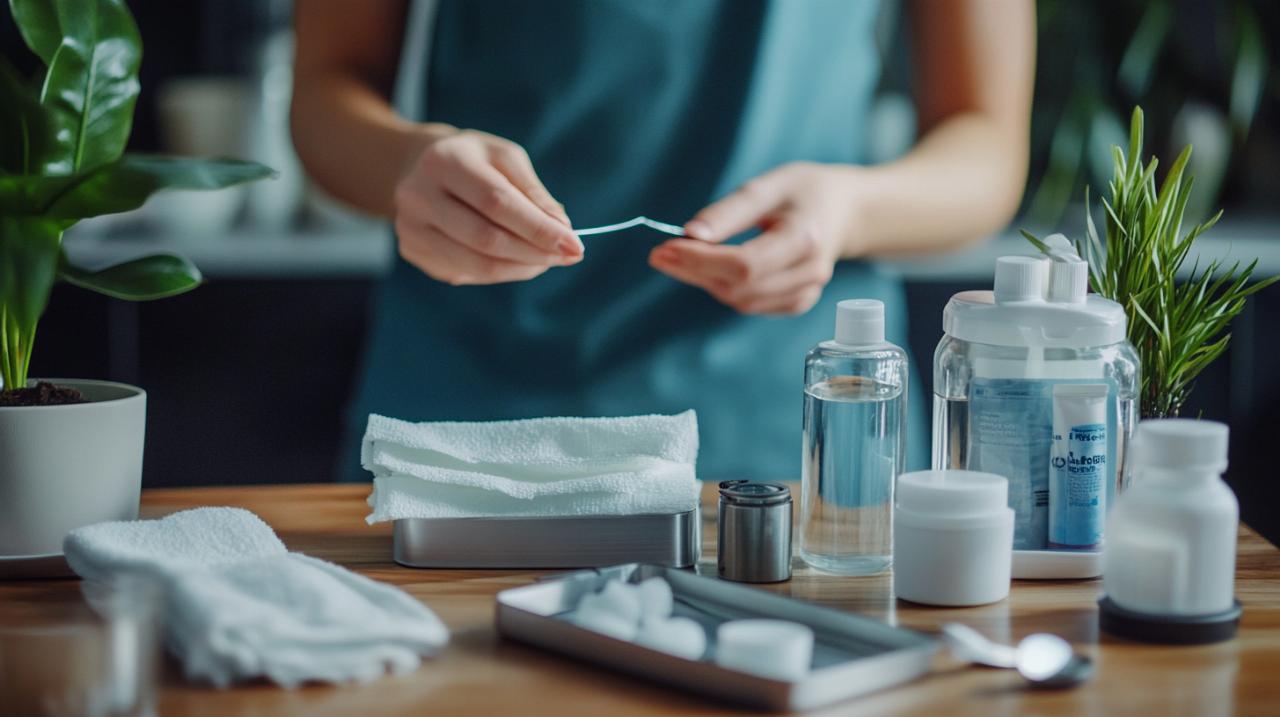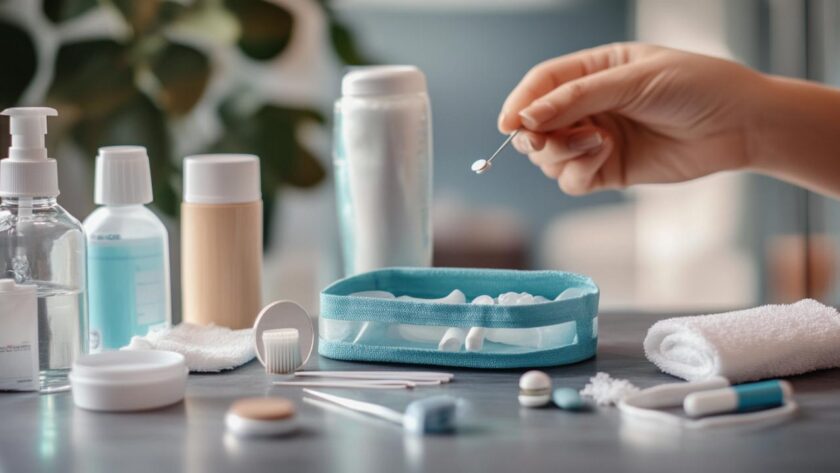When a dental mishap strikes at the most inconvenient moment, knowing how to manage the situation at home can be a real lifesaver. Whether it's a sudden toothache that flares up on a Sunday evening or a chipped tooth from biting down on something unexpectedly hard, having a few effective temporary solutions up your sleeve can help you navigate the discomfort until you can see a professional. These at-home remedies are not meant to replace proper dental treatment, but they can provide welcome relief and prevent further damage whilst you wait for an appointment. Understanding how to address dental pain, control bleeding, and maintain oral hygiene during these tricky times is essential for anyone who wants to keep their smile in decent nick.
Managing pain and bleeding during dental emergencies
Dealing with dental pain is often the most pressing concern when something goes wrong with your teeth. A severe toothache can make it difficult to concentrate on anything else, and the discomfort can be truly unbearable. One of the first steps you can take is to rinse your mouth thoroughly with warm, salty water. This simple remedy helps to cleanse the area and can reduce inflammation. A cold compress applied to the outside of your cheek can also work wonders, especially if there is swelling involved. The cold helps to numb the area and reduce any puffiness, providing a bit of respite from the throbbing sensation.
Over-the-counter pain relievers such as ibuprofen or paracetamol are your best mates when it comes to managing dental pain. They can help to dull the ache and make the situation more bearable whilst you arrange to see your dentist. It is important to follow the recommended dosage carefully and not to exceed the safe limits. Some people also find relief from numbing gels designed for oral use, which can be applied directly to the affected area. Clove oil is another traditional remedy that has been used for generations to ease toothache. A small amount applied to a cotton ball and placed on the painful tooth can provide temporary numbing relief. However, it is crucial to remember that these are short-term solutions and not a substitute for professional care.
If you have a dental filling solution for teeth issues, such as a temporary filling kit available from pharmacies, you can use it to cover any cavities or exposed nerves that might be causing the pain. These kits typically contain a dental cement that hardens when it comes into contact with saliva, providing a protective barrier over the damaged tooth. Brands like Nocavity and CLICADENT offer these temporary fixes, and they can be a godsend when you cannot get to a dentist immediately. Just be aware that these fillings are not designed to last more than a week or so, and you should still seek professional treatment as soon as possible.
Quick Relief Methods for Dental Pain at Home
When the pain hits hard, you need fast relief. Rinsing with warm, salty water is one of the quickest and most effective methods. The salt acts as a natural disinfectant and can help to reduce swelling and inflammation around the affected tooth. Simply mix half a teaspoon of salt into half a mug of warm water and swish it around your mouth for about thirty seconds before spitting it out. This can be done several times a day to keep the area clean and to provide ongoing relief.
Applying a cold compress to the outside of your face is another rapid way to ease the discomfort. Wrap some ice in a clean cloth or use a gel pack, then hold it against your cheek for about ten minutes at a time. This can help to numb the area and reduce any swelling that might be contributing to the pain. If you have a numbing gel such as Orajel, applying a small amount directly to the tooth and surrounding gum can provide almost instant relief by temporarily blocking the nerve signals that transmit pain. Just be careful not to overuse these gels, as they are intended for short-term relief only.
For those who prefer natural remedies, clove oil has long been recognised for its analgesic and antibacterial properties. Dab a small amount onto a cotton ball and place it gently on the aching tooth. The active compound in clove oil, eugenol, works to numb the area and can provide significant relief. Similarly, a cooled tea bag, especially one made from black or peppermint tea, can be pressed against the affected area for around twenty minutes. The tannins in the tea can help to reduce pain and inflammation, making it a handy remedy when you are in a pinch.
Proper Techniques to Control Bleeding from Dental Injuries
Bleeding from a dental injury can be alarming, but it is important to stay calm and take the right steps to control it. If you have experienced a trauma to your mouth, such as a knocked-out tooth or a severe chip, the first thing to do is rinse your mouth gently with warm water to remove any debris. Avoid scrubbing or applying excessive force, as this can make the bleeding worse. Once the area is clean, you can use a piece of clean gauze or a soft cloth to apply gentle pressure directly to the source of the bleeding. Hold the gauze in place for about twenty to thirty minutes, and try to keep your head elevated to help reduce blood flow to the area.
If the bleeding does not stop after thirty minutes of sustained pressure, it may be necessary to seek professional help. Persistent bleeding can indicate a more serious injury, such as damage to the underlying structures of the tooth or gum tissue. In such cases, you should contact an emergency dentist or visit an accident and emergency department. It is also worth noting that a small amount of pink saliva is perfectly normal after a dental injury or extraction, so do not be overly concerned if you notice a slight discolouration in your spit. However, if the bleeding is heavy and does not seem to be slowing down, it is best to err on the side of caution and get it checked out.
For injuries involving a knocked-out tooth, time is of the essence. If you can locate the tooth, pick it up by the crown rather than the root, and rinse it gently with water. If possible, try to place the tooth back into its socket and bite down gently on a piece of gauze to hold it in position. If reinsertion is not feasible, keep the tooth moist by placing it in a container of milk or a tooth-preserving solution. Do not let the tooth dry out, as this can significantly reduce the chances of successful reimplantation. Even if the bleeding has stopped, you should see a dentist as soon as possible to assess the damage and determine the best course of action.
Maintaining oral hygiene during dental emergencies

Keeping your mouth clean during a dental emergency is absolutely vital to prevent infections and further complications. When you are dealing with a broken tooth, a lost filling, or any other dental mishap, it can be tempting to avoid brushing the affected area for fear of causing more pain or damage. However, neglecting your oral hygiene can lead to a build-up of bacteria, which may exacerbate the problem and lead to infection. Gentle brushing with a soft-bristled toothbrush is usually safe, even when you have a dental injury. Just be mindful of the damaged area and avoid applying too much pressure.
Rinsing your mouth with a mild antiseptic mouthwash or a saltwater solution can help to keep the area clean without causing additional irritation. A saltwater rinse is particularly useful because it is gentle yet effective at reducing bacteria and inflammation. You can use this rinse several times a day, especially after meals, to ensure that food particles do not become trapped around the damaged tooth. If you have access to a mouthwash such as Peroxyl, this can also be beneficial as it contains hydrogen peroxide, which helps to cleanse the mouth and promote healing.
It is also important to be mindful of what you eat and drink during this time. Avoiding sugary foods and beverages is crucial, as sugar can feed the bacteria in your mouth and increase the risk of decay and infection. Stick to soft foods that do not require a lot of chewing, and try to avoid very hot or cold items, as these can aggravate sensitive teeth. If you have a temporary filling in place, be especially careful not to chew on that side of your mouth, as the filling material is not as durable as a permanent restoration and can be easily dislodged.
Gentle cleaning approaches when you've got dental trouble
When you are nursing a dental injury or dealing with a lost filling, the last thing you want to do is aggravate the situation with overly vigorous brushing. A soft-bristled toothbrush is your best friend in these circumstances, as it allows you to clean your teeth without causing additional trauma to the sensitive area. Brush gently but thoroughly, taking care to reach all surfaces of your teeth, including the ones that are not affected by the injury. This helps to prevent the spread of bacteria and keeps your overall oral health in good shape whilst you wait for professional treatment.
Flossing can be a bit trickier when you have a dental emergency, but it is still important to try to remove any food particles that might be lodged between your teeth. If you find traditional floss too difficult to use, consider using interdental brushes or a water flosser, which can be more comfortable and less likely to irritate the damaged area. Just be very gentle and avoid forcing the floss into tight spaces, as this could cause further damage or dislodge a temporary filling.
If you have a temporary filling in place, it is especially important to keep the area as clean as possible. Brush around the filling carefully, and use a saltwater rinse after meals to help wash away any debris. Avoid sticky or hard foods that could pull the filling out or cause it to shift. Remember that these temporary fillings are not designed to withstand the same forces as a permanent filling, so treat them with care. If the filling does come out, clean the area again and apply a fresh layer of temporary cement if you have a kit available. However, you should still see a dentist as soon as you can to have the tooth properly restored.
Preventing further complications through proper care
Taking proper care of your teeth during a dental emergency is not just about managing the immediate pain and discomfort; it is also about preventing further complications down the line. Infections are a serious concern when you have a damaged or exposed tooth, as bacteria can easily enter the pulp and cause an abscess. This can lead to severe pain, swelling, and even systemic issues if left untreated. By maintaining good oral hygiene and using temporary measures such as antiseptic rinses and protective fillings, you can significantly reduce the risk of infection.
If you notice any signs of infection, such as swelling, pus, a foul taste in your mouth, or a fever, it is crucial to seek professional help immediately. These symptoms indicate that the infection may be spreading, and you may require antibiotics or other interventions to bring it under control. Do not attempt to drain an abscess yourself, as this can be dangerous and may make the situation worse. Instead, contact your dentist or visit an accident and emergency department if the swelling is affecting your ability to breathe or swallow.
It is also worth noting that some dental emergencies require more urgent attention than others. For example, a knocked-out tooth is a true emergency, and the chances of saving the tooth are much higher if you see a dentist within the first hour or so. Similarly, if you experience persistent bleeding that does not stop with pressure, intense pain that is not relieved by over-the-counter medications, or difficulty swallowing or breathing, you should seek immediate professional care. In these situations, home remedies and temporary fixes are not enough, and delaying treatment could result in permanent damage or serious health complications.
Even if your dental emergency seems relatively minor, such as a small chip or a lost filling, it is still important to see a dentist as soon as possible. What might seem like a minor issue can quickly escalate if not properly treated, and a temporary fix is exactly that – temporary. A dentist will be able to assess the extent of the damage, provide a permanent solution, and ensure that there are no underlying problems that could cause issues in the future. Many dental practices offer same-day or next-day appointments for emergencies, so do not hesitate to reach out and explain the situation. In the meantime, use the temporary measures discussed here to keep yourself comfortable and to protect your teeth from further harm.




